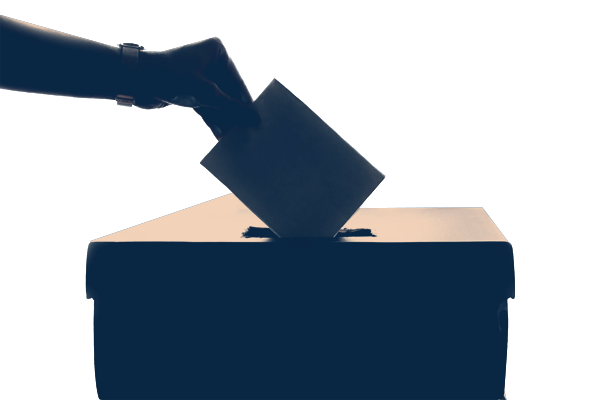Honigman Capitol Report
Governor's Office
No Progress on Budget
House Republicans have criticized Senate Democrats for not producing a road funding plan and have labeled the Senate Democratic budget as unbalanced. Senate Democrats argue that House Republicans delayed the budget process by four months and criticize the House GOP budget for its cuts, suggesting a compromise could be reached between Governor Whitmer's plan and the House Republicans' proposal. A meeting between Senate Majority Leader Winnie Brinks and House Speaker Matt Hall did not go well. With a few weeks left until the fiscal year begins on October 1, there is both ample time to reach a deal and a sense of urgency as time runs out. If no budget is in place by the start of the fiscal year, a partial government shutdown could occur, but specific details depend on Governor Whitmer's decisions regarding state operations. A precedent from 2007, under then-Governor Jennifer Granholm, involved a mix of tax increases and spending cuts, with a clear stance that there would be no budget without new revenue. Granholm's 2007 press release detailed which services would cease without a budget, including the cessation of all Department of Agriculture activities and severe curtailment of operations at the Department of Community Health and Department of Human Services. State Police posts would close to the public, and many state departments and agencies would face total or near-total closure. The October 20 state aid payment to K-12 schools would not be made if the shutdown lasted that long. Governor Whitmer is not obligated to follow the same path as Granholm. In 2007, it was announced that no one in the legislative branch would be paid during a shutdown due to the lack of spending authority, a situation that has not yet been addressed by current legislative leaders.

Committee News
Senate Passes CCS Technology Bills
The Senate has passed three bills aimed at expediting carbon capture and storage (CCS) permitting in Michigan, allowing industries to convert carbon dioxide emissions into a liquid-like form for underground storage. Currently, CCS technology is permitted only by the federal Environmental Protection Agency, but the new bills, SB 394, SB 395, and SB 396, would allow state-level permitting through Michigan's environmental department, which can charge operators up to 32 cents per ton of CO2 injected underground. The bills passed with votes of 29-7 and 31-6. CCS technology is seen as a way for natural gas to comply with Michigan's renewable energy mandates, which require 100% clean energy by 2040, provided CCS achieves a 90% capture rate. Republican Senator Thomas Albert expressed support for the legislation, citing the safe history of injection wells in Michigan and the potential for increased productivity and state revenue from oil and gas wells. However, he criticized the 2023 Democratic policies that exclude oil production using CCS from being classified as clean energy. Despite his mixed feelings, Albert supported the bills based on their merits, while expressing hope for a repeal of current energy policies. Opposition to the bills came from several senators, including Democrats Rosemary Bayer, Stephanie Chang, Erika Geiss, Jeff Irwin and Sue Shink, and Republicans Jonathan Lindsey and Ed McBroom with concerns about the environmental and economic implications of carbon sequestration. Several amendments were proposed but failed. The MI Success coalition, which includes organizations like Hemlock Semiconductor and Consumers Energy, celebrated the Senate's decision, emphasizing the potential for economic investment and job creation in Michigan.

Election News
Senate District 35 Special Election
Governor Gretchen Whitmer has scheduled a special election for Senate District 35, prompting Senate Democrats and those in the Tri-Cities area to search for potential candidates. Currently, three candidates from Saginaw have emerged: Pamela Pugh, Chedwick Greene, and Brandell Adams. However, there is concern about whether a progressive candidate can succeed in the district's rural areas during a general election. Other potential candidates include Grant Rivet, Weston Prince, Sarah Schulz, and Katie Zanotti, with Rivet's name recently being poll-tested. Democrats have been successful in special elections nationwide, including a recent victory in a +11 Trump state Senate district in Iowa. Among the Democratic candidates, Pugh previously lost a congressional nomination, Greene lacks elected experience, and Adams is a former trustee. Rep. Amos Oneal has no interest in running for the state Senate. On the Republican side, Rep. Bill G. Schuette is expected to run, with Rep. Timothy Beson also considering a candidacy. Schuette is seen as the favorite due to his political experience and strong name recognition.
On Point
Client Alert: Seventh Circuit Adopts New Standard for FLSA Collective Action Notices

Looking Ahead
There is widespread speculation following the conclusion of the budget the House and Senate impasse on policy bills will finally break. At this point only 10 bills have gone to the Governor’s desk for signature, a record in recent Michigan history. The expectation is that between a budget agreement, vote and signature by the Governor, other policy focused bills will start to move out of various committees to the floor and to the other chamber for action. If this is the case, members of the legislature will likely experience several very long nights of votes prior to the end of the year and hunting/holiday breaks.
Related Professionals
Related Services
Media Contact
To request an interview or find a speaker, please contact: press@honigman.com


